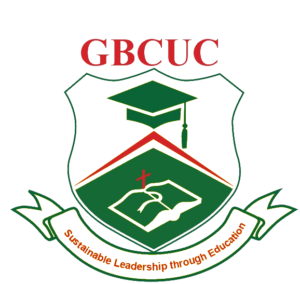
PROGRAM INFORMATION
TYPE: BACHELOR DEGREE
DURATION: 4 YEARS
ACCREDITATION: HEA, ZQF LEVEL 7
BACHELOR OF ARTS WITH EDUCATION (ICT AND ENGLISH)
This program is designed to equip aspiring educators with the skills and knowledge they need to become effective teachers of English language and ICT in today’s dynamic and technology-driven world.
As the global economy becomes increasingly interconnected, the demand for English language skills and proficiency in ICT is rapidly increasing. The Bachelor of Arts with Education program in English Language Education and ICT prepares students to meet this demand by providing them with a strong foundation in language, communication, and technology.
Through a combination of theoretical coursework and practical training, students will learn how to design, develop, and implement effective teaching strategies and techniques for English language and ICT. They will also develop a deep understanding of the theoretical and practical aspects of education, including psychology, curriculum development, assessment, and evaluation.
Upon completion of the program, graduates will be well-equipped to pursue a wide range of careers in education, including teaching English language and ICT at primary, secondary, or tertiary levels, as well as working in education administration, curriculum development, and educational technology.
Our program is led by a team of experienced educators and experts in language and ICT, who are committed to providing our students with a challenging and rewarding learning experience. We invite you to join us on this exciting journey towards becoming a skilled and successful educator in English language and ICT.
Program Outline
YEAR 1: ENGLISH LANGUAGE AND ICT EDUCATION | |
COURSE CODE | COURSE TITLE |
EDU 1121 | INFORMATION AND COMMUNICATION TECHNOLOGY |
LLE 1131 | ACADEMIC WRITING, STUDY AND COMMUNICATION SKILLS |
LLE 1132 | STUDIES IN WRITING SKILLS AND LITERATURE |
ICT 1100 | INTRODUCTION TO ICT |
EDU 1222 | HISTORY AND PHILOSOPHY OF EDUCATION |
ICT 111O | INTRODUCTION TO PROGRAMING |
LLE 1233 | INTRODUCTION TO LANGUAGE AND LINGUISTICS |
LLE 1234 | INTRODUCTION TO PROSE FICTION, POETRY AND DRAMA |
YEAR 2: ENGLISH LANGUAGE AND ICT EDUCATION | |
CODE | COURSE NAME |
EDU 2121 | SPECIAL EDUCATION, GUIDANCE AND COUNSELLING |
LLE 2131 | ENGLISH PHONETICS, PHONOLOGY AND MORPHOLOGY |
LLE 2132 | CLASSICAL, ROMANTIC AND MODERN RITICISM |
ICT 2210 | COMPUTER ARCHITECTURE AND ORGANIZATION |
ICT 2220 | COMPUTER NETWORKING AND SYSTEM ADMINISTRATION |
EDU 2222 | EDUCATIONAL PSYCHOLOGY |
LLE 2233 | ENGLISH SYNTAX |
LLE 2234 | AFRICAN PROSE FICTION – POST COLONIAL UP TO PRESENT |
ICT 2230 | FUNDAMENTALS OF DATA STRUCTURES AND ALGORITHMS |
YEAR 3: ENGLISH LANGUAGE AND ICT EDUCATION | |
CODE | COURSE NAME |
EDU 3121 | THEORY AND PRACTICE OF EDUCATION |
LLE 3131 | ENGLISH TEACHING METHODS |
LLE 3132 | ENGLISH SEMANTICS AND PRAGMATICS |
EDU 3129 | SCHOOL TEACHNG EXPERIENCE |
ICT 3300 | FUNDAMENTALS OF WEB DESIGN AND DEVELOPMENT |
ICT 3812 | COMPUTER SECURITY |
EDU 3121 | EDUCATIONAL RESEARCH METHODS |
EDU 3222 | SOCIOLOGY OF EDUCATION |
LLE 3233 | RESEARCH METHODS IN LINGUISTICS |
LLE 3234 | ENGLISH DISCOURSE ANALYSIS |
ICT 3312 | OBJECT-ORIENTED PROGRAMMING |
YEAR 4: ENGLISH LANGUAGE AND ICT EDUCATION | |
CODE | COURSE NAME |
EDU 4121 | THEORY AND PRACTICE OF EDUCATION |
EDU 4012 | EDUCATIONAL MANAGEMENT AND ADMINISTRATION |
LLE 4131 | ADVANCED ENGLISH TEACHING METHODS |
ICT 4410 | OBJECT ORIENTED SYSTEMS ANALYSIS AND DESIGN |
EDU 4013 | RESEARCH PROJECT REPORT |
LLE 4234 | PSYCHO – SOCIOLINGUISTICS |
ICT 4013 | E-LEARNING |
ICT 4420 | ICT TEACHING METHODOGIES |
Programme Aims and Objectives
The aims of the Bachelor of Arts with Education (English Language Education and ICT) program are as follows:
- To equip students with the knowledge, skills, and competencies required to teach English language effectively in a wide range of educational settings, using modern teaching methodologies and technology.
- To enable students to develop a deep understanding of the principles of effective communication in English, including the ability to analyze and interpret complex texts, and to communicate effectively in both oral and written form.
- To provide students with a strong foundation in the use of information and communication technology (ICT) tools and applications for teaching, learning, and communication.
- To prepare students to be reflective practitioners, capable of critically evaluating their own teaching practice, adapting their teaching strategies to suit the needs of diverse learners, and continuously updating their skills and knowledge in response to changing educational contexts.
- To develop students’ awareness of the social, cultural, and ethical issues involved in English language education, and to equip them with the skills and knowledge needed to promote equity, diversity, and inclusion in their teaching practice.
- To prepare students for further study and research in the field of English language education, and to provide them with the necessary skills and knowledge to engage in independent inquiry and scholarship.
